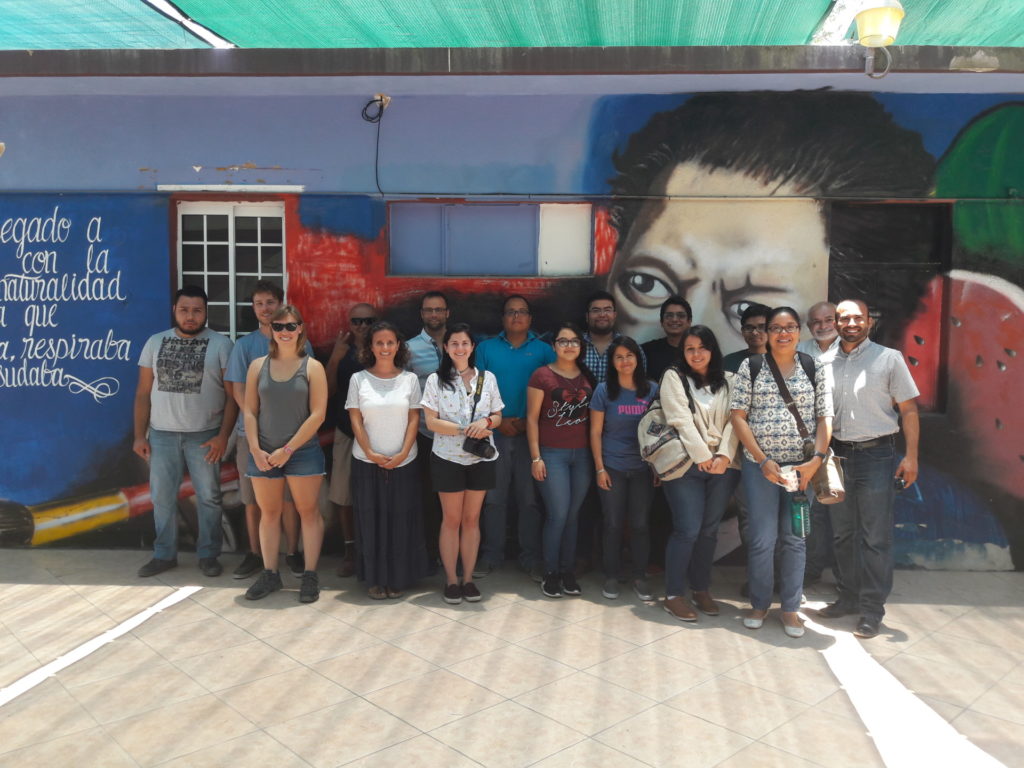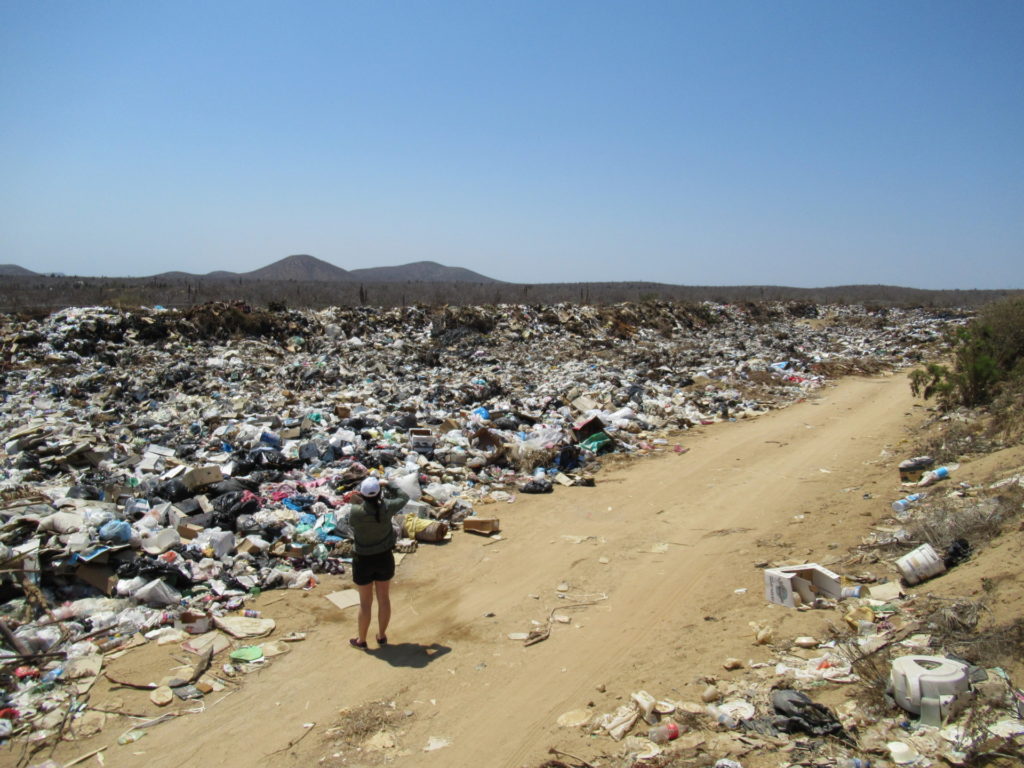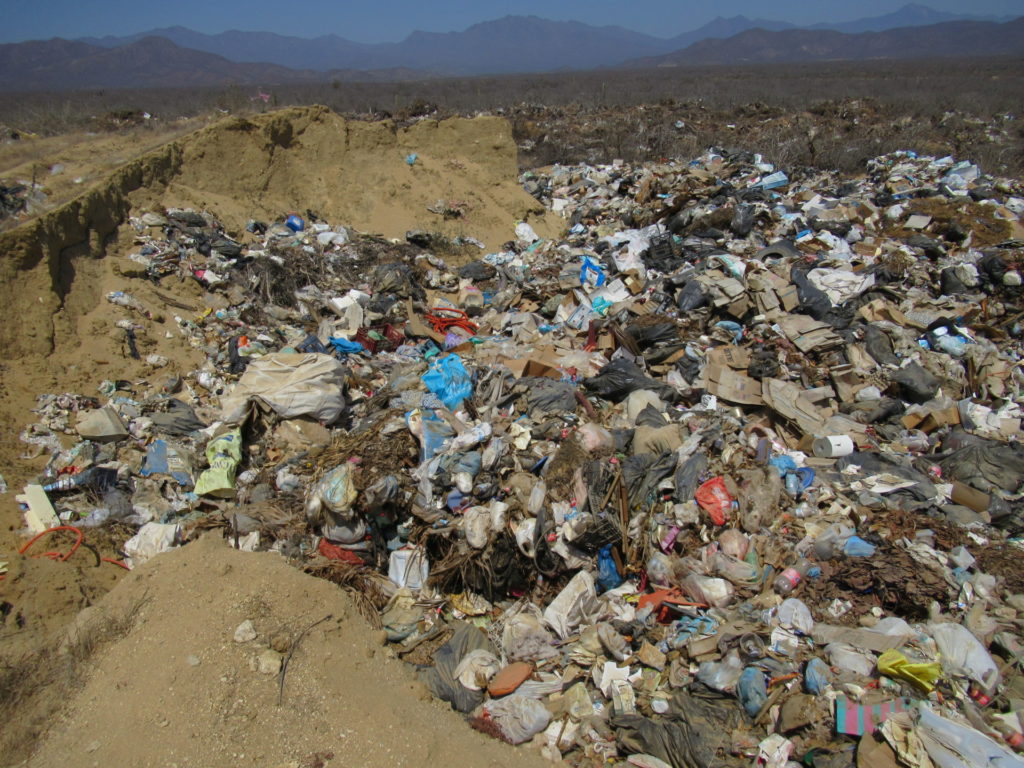


A community needs assessment conducted by Colorado State University in June of 2015 highlighted the lack of an integrated solid waste management in Todos Santos, so to better understand the current situation of waste management in Todos Santos and what could feasibly be achieved to improve it, the waste management team embarked on an initial assessment trip.
The team was composed of Andy Carroll, a graduate student of Civil and Environmental Engineering; Assistant Professor Chris Bareither; and Priscilla Mercedes, a Spanish translator and undergraduate in Electrical Engineering. Over the course of four days in June 2017, the team met with several community members, including Alex Miró, who runs the local recycling facility Punto Verde, the Secretary General of Todos Santos, and several professors and solid waste professionals in nearby La Paz.
“The issue of solid waste is something that every person on the planet can relate to. It is important for countries to work together so that we can not only improve public and environmental health, but also utilize resources more efficiently through tools like recycling, composting, etc. The goal is really a paradigm shift from waste as a burden to a resource,” says Carroll.
Moving forward, the team hopes to complete a system analysis of solid waste management in Todos Santos, and provide the town with recommendations based on environmental, economic, and social factors.
About the CSU Todos Santos Center
The Colorado State University Todos Santos Center is the university’s first international location and is core to CSU’s mission of teaching, research, service, and outreach.
The Center provides opportunities for CSU students and Baja California Sur residents to collaborate with local partners and businesses to identify needs, conduct research, and produce impactful outcomes.
CSU’s vision in Todos Santos is to cultivate generations of global citizens and to be a part of creating thriving communities through collaboration, experience, and exchange of knowledge in areas such as agriculture, infectious disease, elementary education, environmental and social sustainability, wildlife ecology, veterinary medicine, and public health.